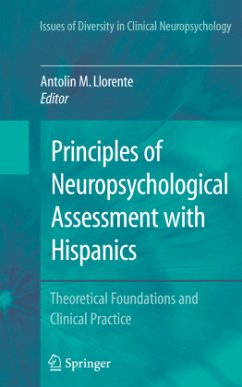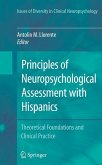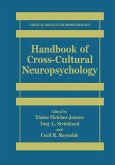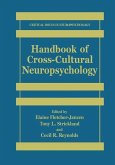Here is the first volume of a new series that explores diversity, culture, and ethnicity and their impact on neurological function. This volume features research-based evidence on the impact of Hispanic culture on brain-behavior relationships. Articles explore factors such as acculturation, assimilation, cultural identity, and migration patterns. Clinical issues, such as competence and minimal standards and novel approaches for appropriate assessments of Hispanic populations, are examined. You'll discover important new findings and gain fascinating perspectives from disciplines in both the life and social sciences.
Many demographers believe that Hispanics will become the single largest minority in this country within the next generation. This volume will be the first volume of this new series that explores diversity, culture and ethnicity and their impact on neurological functioning.
It will provide a forum in which to examine and explore the influences of culture on brain-behavior relationships from theoretical and applied viewpoints. From a theoretical standpoint, the book will attempt to provide research-based evidence from the impact of culture on brain-behavior relationships while at the same time exploring key factors and issues (e.g., acculturation / assimilation, cultural identity, migrational patterns and their concomitants) responsible for these influences. From an applied standpoint, clinical issues such as competence and minimal standards associated with appropriate assessments of these populations will be discussed, including novel approaches to assessments.
Hinweis: Dieser Artikel kann nur an eine deutsche Lieferadresse ausgeliefert werden.
Many demographers believe that Hispanics will become the single largest minority in this country within the next generation. This volume will be the first volume of this new series that explores diversity, culture and ethnicity and their impact on neurological functioning.
It will provide a forum in which to examine and explore the influences of culture on brain-behavior relationships from theoretical and applied viewpoints. From a theoretical standpoint, the book will attempt to provide research-based evidence from the impact of culture on brain-behavior relationships while at the same time exploring key factors and issues (e.g., acculturation / assimilation, cultural identity, migrational patterns and their concomitants) responsible for these influences. From an applied standpoint, clinical issues such as competence and minimal standards associated with appropriate assessments of these populations will be discussed, including novel approaches to assessments.
Hinweis: Dieser Artikel kann nur an eine deutsche Lieferadresse ausgeliefert werden.
From the reviews: "This volume is quite timely and clinically relevant considering that the Hispanic/Latino population is the largest and fastest growing racial/ethnic minority group in the United States ... . In summary, Principles of Neuropsychological Assessment With Hispanics: Theoretical Foundations and Clinical Practice is an essential reading for any neuropsychologist conducting research or clinical evaluations with Hispanic adults and/or children ... and for professionals in related disciplines, as well as for graduate and postgraduate training in clinical neuropsychology." (Monica Rivera Mindt, International Neuropsychological Society, Vol. 15, 2009)








